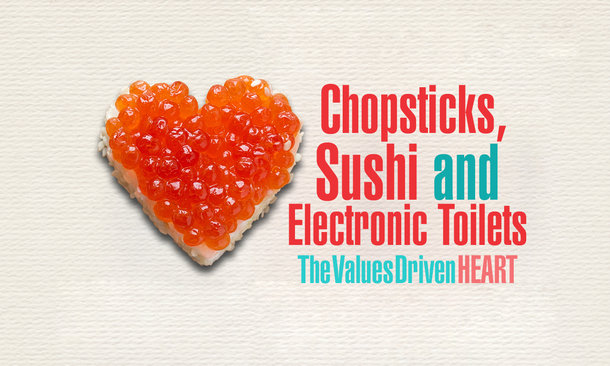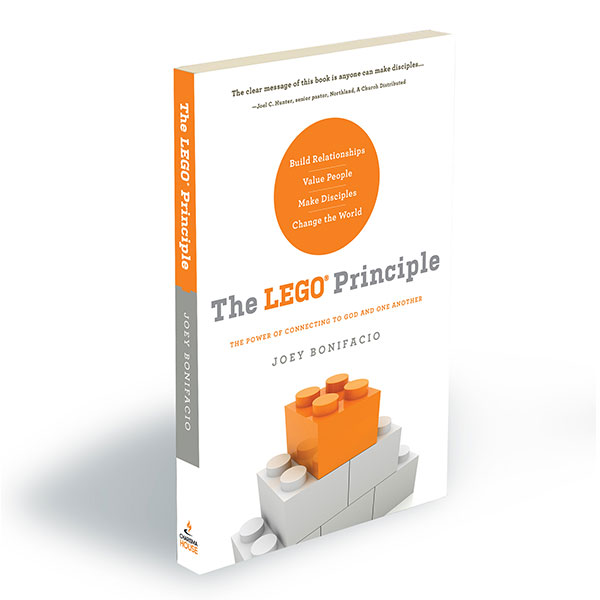Chopsticks, Sushi and Electronic Toilets

You may be wondering what makes values so important that we have spent 14 weeks just to discuss the topic. Well, after weeks of writing on values, what it comes down to is its influence on culture. Values are the single, most important ingredient that shapes culture.
Culture is what people do without thinking. When we see certain practices in our homes, offices, churches, communities and nation, these represent our culture.
Chopsticks, Sushi and Electronic Toilets
A good example of this truth is when we go to different nations. In Japan, for example, people use fresh chopsticks as utensils for every meal of everyday. It’s just part of their culture, part of who they are. This implies that a huge amount of trees get chopped up, and turned into utensils year in, year out.
Eating with chopsticks is a practice the Japanese do without thinking. What has produced this culture is the long-standing Japanese value on cleanliness. There are no cleaner people in the world than the Japanese, and it is because they value this.
We see cleanliness also translate in their daily routines. Whether it is bathing in an onsen, preparing food, or keeping a minimalist zen home, cleanliness is a value that affects everything they do. They practice this without thinking. It is so ingrained in their culture that the Japanese are responsible for inventing the remote-controlled faucet, and the high-tech toilet that allows you to clean yourself without touching dirt or any part of your body.
iPhones and Multiple Values
Another case in point: the iPhone, a gadget that existed for just a little over eight years. In less than a decade, the iPhone has not only emerged as one of the widest-selling gadgets of all time, it is now an integral part of everyday culture—the thing we use without thinking. It has also become the basis of copycats who have turned the smartphone into a cultural phenomenon and is changing the way we live.
Moreover, the smartphone has crossed massive cultural barriers—by being used all over the world and by people of different ages. How did it do that? Why is there no stopping the phenomena? In a word, it was the values behind the smartphone.
The smartphone gives us the ability to call our family and friends (and that’s a high value!). We can now use our smartphones to transact with our bankers, get the news, check the time worldwide, go to the library (Google), send emails, shop, book a flight, do work, watch videos, listen to music, take pictures, and so much more. It is because of the values surrounding the smartphone that we find this cultural phenomenon growing at breakneck speed, and no signs of letting up.
Christians, Values and Impacting Culture
Herein lies the reason why values are an important discussion: values are the raw materials for culture. Good values produce good culture; bad values produce the opposite. Whichever way it goes, values shape the things people do without thinking—culture.
As Christians, the more we understand what is truly valuable and realize its impact on people, the more we can influence culture.
As we come closer to the end of this series, keep in mind what Jesus said: “where your treasure (values) is, there your heart will be also.“ (Matthew 6: 21) At the end of the day, our values drive our hearts and the culture around us.
My Comments Policy
While my site offers visitors the ability to converse, I have a few ground rules so that our conversations will remain civil and courteous.
1. You must register in order to leave a comment. I don’t entertain pseudo, anonymous or bogus individuals. This site is my home (it has a Home Page, get it). I don’t let strangers who don’t introduce themselves into my home.
2. I love questions. I love them because a lot of times they are similar to someone else’s questions and can even trigger other questions from others. Questions also keep us all sharp. This is also why I respond to them as best as I can and at the soonest possible time. I believe that group answering benefits more people than private email exchanges.
3. We don’t have to agree. Debates are welcome. However, whether it is with me or any other visitors of my site, my rule is this: disagree if you must but keep things civil. That’s just how I run my home, and you are a visitor here. No shouting; I have seen it done in writing. No cursing and no insulting.
4. I reserve the right to delete your comments. Like I said, this is my home. I do not have an obligation to publish your comments. As a human being, you may enjoy the freedom to express your opinions on your own site but not on mine. To be specific, I will delete your comments if you post content that is in my sole opinion: (a) snarky; (b) off-topic; (c) libelous, defamatory, abusive, harassing, threatening, profane, pornographic, offensive, false, misleading, or which otherwise violates or encourages others to violate my sense of decorum, civility or any law, including intellectual property laws; or (d) “spam,” i.e. an attempt to advertise, solicit, or otherwise promote goods and services. You may, however, post a link to your site or your most recent blog entry.
5. You retain ownership of your comments. I do not own them and I expressly disclaim any and all liability that may result from them. By commenting on my site, you agree that you retain all ownership rights in what you post here and that you will relieve me from any and all liability that may result from those posts.
6. You grant me the license to post your comments. This license is worldwide, irrevocable, non-exclusive, and royalty-free. By posting comments on my site, you automatically grant me the right to store, use, transmit, display, publish, reproduce, and distribute your comments in any format, including but not limited to a blog, in a book, video, or presentation.
In short, my goal is to host interesting conversations with caring, honest, and respectful people. I believe this clear and simple comments policy will facilitate this.



































